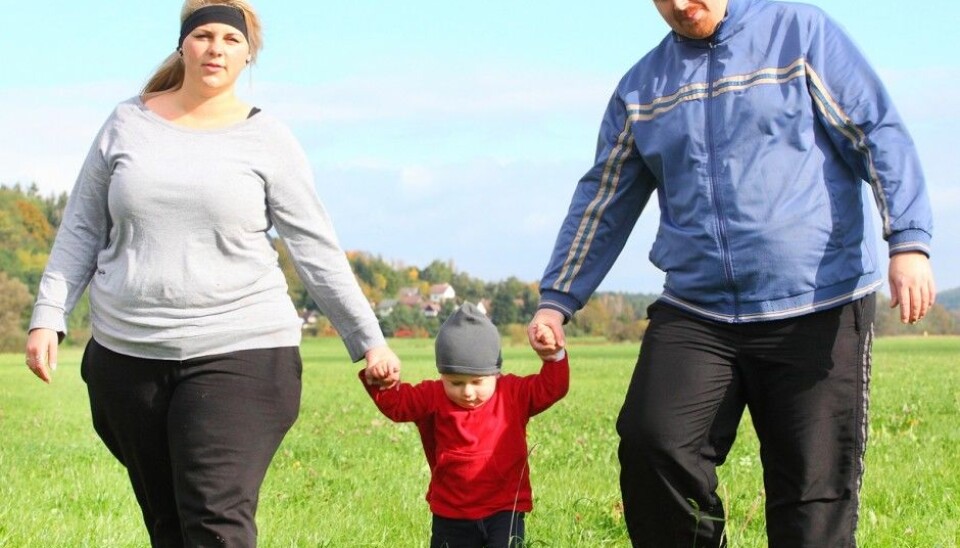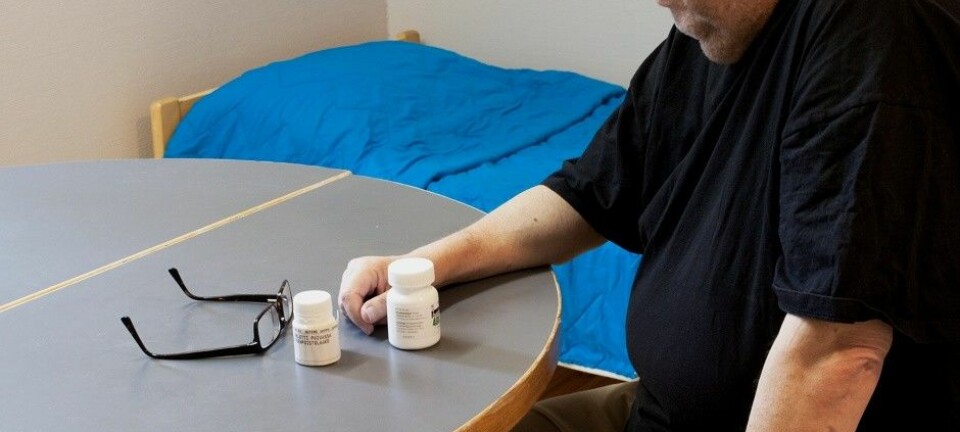
Society scorns fat people says sociologist
We often speak of a worldwide obesity epidemic. A Swedish researcher calls it a stigmatization of fat people.
Obese persons are no strangers to stigmatization and discrimination.
This too often leads to psychological distress and isolation, undermining joy in life. Discrimination then links to an elevated risk of somatic health problems.
Ultimately, discrimination based on weight can shorten lives, according to earlier research published by ScienceNordic’s Norwegian partner, forskning.no.
In her doctoral thesis at Sweden’s Karlstad University, Susanne Brandheim shows that fat people are not more prone to be plagued by psychological problems than persons with normal weights, when controlling for age and gender variables.
“The research conducted earlier on the stigmatization of fat people has almost unilaterally focussed on the negative feedback people receive about their bodies. But there is no automatic link between negative comments
and psychological problems. Some people can take it and some can’t.”
She reminds us that people differ – fat people too.
A matter of vulnerability
She finds that for some corpulent people a lack of positive responses from others can be just as harmful for their psychological health as condescending comments.
A life cannot consist solely of negative moments and events. Some are positive and some are negative. Psychological distress can result if the negative experiences take the upper hand. Individual vulnerability factors can determine which persons are impacted most.
Brandheim points out that these differences are extensive.
“Those who are worst off are the ones who already have negative self-images. They have open wounds for criticism because they are already hurting so badly.”
She points out that persons who only take in negative comments are the most disposed toward being hurt and self-judgemental.
Those who can also attest to receiving positive responses from others are obviously better off.
The researcher points out a drawback in her study is that psychological distress can be self-sustaining, making some people experience nothing but negative comments.
Big gender differences
The Swedish sociologist found clear gender differences in the vulnerability of fat people to suffer from social stigmatization.
Women generally react more strongly than men to the absence of positive comments and the presence of negative ones. This disparity is amplified among fat women.
Brandheim thinks this is because women – of all sizes – are more exposed to being visually appraised by others.
Self-experienced affronts
Brandheim describes herself as fat. She started off her doctoral dissertation with the conviction that obese people are stigmatized.
She says this stigmatization of fat people cannot be attributed solely to individual persons or institutions.
“It is built into our whole system and culture. It is the sum of all these interactions that makes fat people feel themselves stigmatized.”
“I have seen this for a long time and studied it for ten years. I knew we feel all the worse when we come in contact with the health services.”
One of the memes that fat people encounter is that they lack willpower and have no control; they are gluttons.
In a Swedish radio interview Brandheim asked: “How can this prevail?”
Advice, but no medicine
She thinks the public health services need to understand what they are doing when giving superficial advice to fat people about losing weight, without offering any medicine.
ScienceNordic’s affiliate forskning.no has written time and again about the low success of treatment for obesity. Meta-analyses of international studies have shown that young people in long-term treatment programmes lose insignificantly more weight than those receiving little or no treatment.
“When a doctor tells a patient that he or she needs to lose weight the physician is unconcerned about the patient’s self-image. They don’t consider that some patients are more vulnerable to negative comments than others.”
Brandheim links such insensitivity amongst doctors and health personnel to our culture that scorns obesity.
Doctors need cultural competence
She thinks the medical profession needs to learn more than ethics. Physicians also need to acquire cultural competence.
“There is a big difference between telling a rich businessman that he needs to shed five or six kilos and telling a young girl she weighs 30 kilos too much and has to diet,” she says.
The sociologist thinks the health system’s lack of understanding about obesity can be just as damaging as the derogatory remarks heard by fat people constantly.
-------------------------------------
Read the Norwegian version of this article at forskning.no
Translated by: Glenn Ostling






